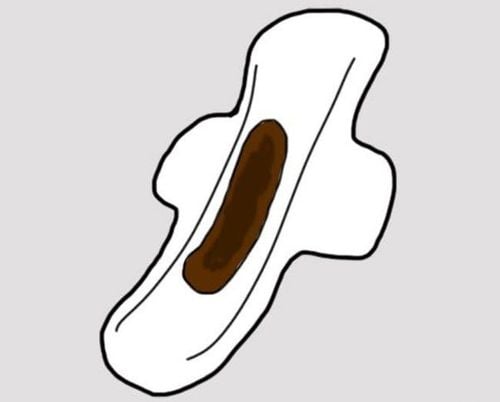This is an automatically translated article.
Polycystic ovary is an increasingly common gynecological disease, related to hormone imbalance. People with polycystic ovaries not only reduce fertility but also increase the risk of many other diseases, including sleep disorders.
1. What is polycystic ovary?
Polycystic Ovary Syndrome (PCOS) is an increasingly common gynecological disease, related to an imbalance of hormone levels. People with polycystic ovaries not only reduce fertility but also increase the risk of many other diseases.Female hormone imbalance makes the ovulation process disordered, the egg cannot develop, leading to atrophy and degeneration. Therefore, it is difficult for women with PCOS to conceive.
In some women, symptoms of PCOS can appear as early as the first menstrual period. However, in most cases, symptoms of the disease are only discovered when there are problems with fertility. People with polycystic ovary syndrome often have the following symptoms.
Irregular menstrual cycle: The most common sign of polycystic ovary syndrome is an irregular menstrual cycle, manifested by a period shorter than 25 days or a period lasting 2-3 months, even Menstruating only 1-2 times a year or completely amenorrhea. Uncontrolled weight gain: Up to 80% of women with PCOS are overweight or obese. The weight is also unstable, most often the weight gain is out of control, leading to a lot of stress and fatigue for the patient. Having skin problems: Hormonal imbalance in PCOS, especially increased levels of male androgens, leads to skin problems. Hair loss and abnormal hair growth: The high androgen hormone in PCOS causes excessive hair loss, black, stiff hair growth and hirsutism on the face (mustache), legs, arms, chest, back and abdomen. Sleep disorders: Difficulty falling asleep, not sleeping well or having sleep apnea, making the patient always feel tired. Sleep disorders caused by polycystic ovary syndrome often worsen with age, causing insomnia in middle-aged women. Mood swings: Psychological instability of women with polycystic ovaries. Patients are often angry for no reason or sad for no reason, stress, anxiety. Feeling discomfort in the lower back, abdomen and pelvis or dull pain resembling menstrual cramps ranging from mild to severe are also symptoms of PCOS. Infertility and infertility are both a symptom and a complication of polycystic ovary syndrome. The decline in female hormone levels in the body can inhibit the growth of follicles, affecting ovulation and irregular menstrual cycles. Therefore, polycystic ovary syndrome is one of the causes of infertility in women. In addition, high testosterone and insulin levels increase the risk of miscarriage.

Buồng trứng đa nang là bệnh lý phụ khoa có liên quan đến rối loạn giấc ngủ
2. The interaction between polycystic ovaries and sleep disorders
Hormonal and psychological disturbances manifest through stress, anxiety, depression and sleep disturbances. Therefore, insomnia, especially insomnia in middle-aged women, is both a symptom and a complication of polycystic ovary syndrome. In contrast, prolonged sleep disturbance may affect fertility through regulation of the hypothalamic-pituitary-adrenal axis, insulin resistance, systemic inflammation, and oxidative stress.
Sleep plays an important role in the secretion of FSH to stimulate follicle development. Sleep also affects LH, which regulates reproductive function. As for Prolactin, sleep deprivation leads to increased prolactin blood levels that have been linked to egg maturation and ovulation, polycystic ovary syndrome, and endometriosis. Sleep affects progesterone insignificantly through its effect on the transformation of the endometrium in preparation for implantation of the embryo and maintenance of pregnancy. In addition, increased levels of thyroid hormone - TSH can stimulate the secretion of more prolactin leading to anovulation, menstrual disorders, amenorrhea, miscarriage and infertility. In addition, insomnia also inhibits the secretion of the hormone melatonin and impairs fertility.
Therefore, if you have insomnia, trouble sleeping, not sleeping well along with some signs of suspicion of polycystic ovaries, the patient should go to a medical facility for examination, diagnosis and appropriate treatment.

Rối loạn giấc ngủ do buồng trứng đa nang thường trầm trọng hơn khi tuổi càng lớn
In order to help customers detect and treat other gynecological diseases early, Vinmec International Hospital has a basic gynecological examination and screening package, helping customers detect early inflammatory diseases Easy, inexpensive treatment. Screening detects gynecological cancer (cervical cancer) early even when there are no symptoms.
Basic gynecological examination and screening package for female customers, has no age limit and may have the following symptoms:
Abnormal vaginal bleeding Having menstrual problems: irregular menstrual cycle, irregular menstrual cycle Irregular vaginal discharge (smell, different color) Vaginal pain and itching Female clients have several risk factors such as poor personal hygiene, Unsafe sex, abortion,... Female customers have other symptoms such as: Abnormal vaginal discharge, itching, pain in the private area, abnormal vaginal bleeding. When registering for the Basic Gynecological Examination and Screening Package, customers will receive:
Gynecological Specialist Examination Transvaginal Uterine Ovarian Ultrasound Vaginal Bilateral Breast Ultrasound Tests such as: Treponema pallidum test rapid, Chlamydia rapid test, taking samples for cervical-vaginal cytology, bacterioscopic staining (female vaginal fluid), HPV genotype PCR automated system, Total urinalysis by automatic machine.
Please dial HOTLINE for more information or register for an appointment HERE. Download MyVinmec app to make appointments faster and to manage your bookings easily.
Reference source: hosrem.org.vn












